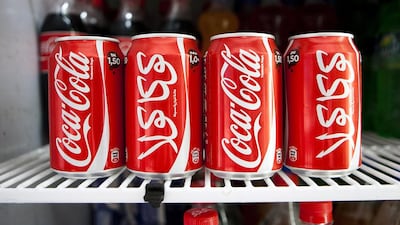The UAE has published the law on excise taxes relating to tobacco as well as energy and fizzy drinks that will pave the way for introducing tariffs in the fourth quarter of this year.
The UAE plans to introduce excise tariffs at a rate of 100 per cent on tobacco and energy drinks and 50 per cent on sugary drinks.
“The project diversifies the government’s revenue streams and boosts its resources, which, in turn, will strengthen the economy and ensure its sustainability," said Sheikh Hamdan bin Rashid Al Maktoum, Deputy Ruler of Dubai, UAE Minister of Finance, and Chairman of the Federal Tax Authority.
"This tax is set to discourage the consumption of products that negatively impact the environment and, more importantly, people’s health, while the revenues it generates will go towards supporting advanced services for all members of society," Sheikh Hamdan added.
The UAE is expected to be the second country in the Arabian Gulf to introduce excise taxes after Saudi Arabia began implementing the tax at the same rate in June this year.
The law is expected to be followed by the publication of the value added tax, which will be implemented at a GCC-wide rate of 5 per cent starting January 1, 2018.
The introduction of VAT and excise taxes are expected to boost the inflation rate by a one-off 1.4 per cent, Khalid Al Bustani, the director general of the country’s Federal Tax Authority, said earlier this month.
___________________
Read our essential tax guide here:
Tax in the UAE: Everything you need to know about VAT and a little bit more
UAE excise tax ‘may lead to some products disappearing from shop shelves’
___________________
Around 250 companies will be subject to the excise tax, he added.
The UAE and other GCC states are introducing taxes to make up for dwindling income from energy caused by the slide in oil prices since mid-2014.
The Federal Tax Authority will open tax registration in September of the year for companies that produce, import or store products that are subject to excise tax.
"In general, as both (UAE and Saudi excise) laws are based on a common framework established by the GCC Excise treaty, unsurprisingly there are a number of similarities notwithstanding different terminology," said Shiraz Khan, a senior tax advisor at UAE law firm Al Tamimi & Company. "However, it is difficult to fully compare the two laws since KSA (kingdom of Saudi Arabia) has issued the law and regulations and the UAE has only published the law with most of the detail to be made available in the regulations which are yet to be issued."
In the UAE, the excise tax will be calculated as a percentage of the retail sale prices (RSP), the Federal Tax Authority said in May.
Globally, the amount of tax levied on such items is usually based on the sugar or tobacco content or a combination of content and value, according to experts.
The publication of the excise tax law is expected to be followed by the VAT law, with bylaws for both taxes set to be issued in the fourth quarter, Mr Al Bustani said.
The implementation of the GCC-wide tax is expected to boost GDP by about 1.5 per cent with the implementation of the 5 per cent VAT, the International Monetary Fund has said.
In the UAE, VAT could generate Dh12 billion in its first year and Dh20bn in its second year, according to Sultan Al Mansouri, the Minister of Economy.
The UAE last month issued the Tax Procedures Law, setting the foundations for the planned UAE tax system, regulating the administration and collection of taxes and defining the role of the Federal Tax Authority, and paving the way for more specific legislation on VAT and excise tax.
___________________
Read more:
UAE tax laws by September, may increase consumer prices by 1.4%
VAT is coming to the UAE, time to study up
Sheikh Khalifa issues landmark tax law for UAE
___________________

